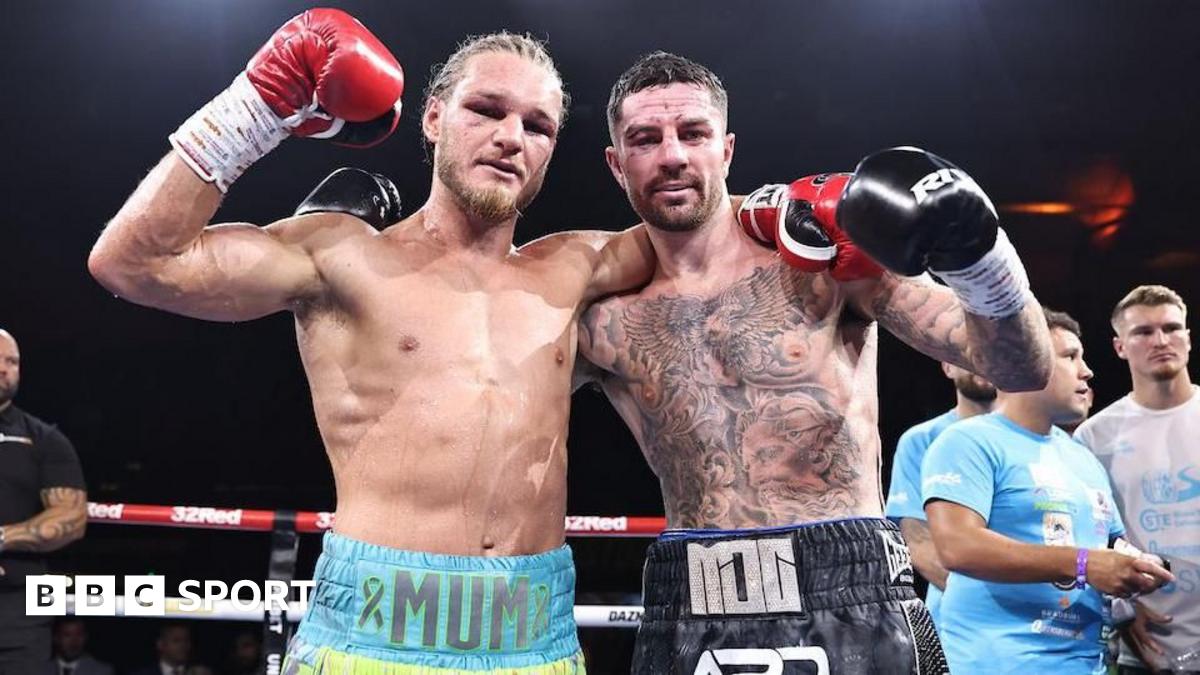7 Proven Sales Negotiation Techniques for Closing More Deals

In sales negotiation, achieving key techniques can greatly improve your ability to close deals. Start by preparing thoroughly, comprehending your client’s needs, and honing your active listening skills. You’ll additionally want to handle objections confidently as you maintain clear communication. By focusing on win-win solutions, you can cultivate trust and long-term relationships. As you implement these strategies, you’ll discover how effective negotiation can transform your sales outcomes. What specific techniques will you prioritize in your next negotiation?
Key Takeaways

- Thoroughly prepare by researching the buyer’s needs and pain points to tailor your proposal effectively.
- Practice active listening to identify true concerns and foster a collaborative atmosphere during negotiations.
- Set a clear agenda to prioritize key discussion topics and minimize misunderstandings throughout the negotiation process.
- Use social proof, like testimonials, to enhance perceived value and build trust with potential buyers.
- Follow up promptly after negotiations to reinforce connections and keep communication open for future opportunities.
Understanding Sales Negotiation

Sales negotiation is an integral part of the sales process, and grasping its dynamics can markedly improve your effectiveness as a seller. Comprehending sales negotiation involves recognizing it as a dynamic conversation aimed at reaching a mutually beneficial agreement.
During business sale negotiations, you’ll discuss key terms like pricing, payment schedules, and delivery dates. Utilizing effective sales negotiation techniques requires clear communication and active listening to address both parties’ needs.
Prepare thoroughly by identifying the buyer’s pain points and operational capabilities, enabling you to tailor your proposals effectively. Implementing strong sales negotiation strategies can establish a foundation for long-term relationships, nurturing trust and paving the way for repeat business, which is vital for sustainable success in sales.
Essential Sales Negotiation Skills

To succeed in sales negotiations, you need to focus on crucial skills that drive results.
Start with thorough preparation and research to understand your client’s needs and the market environment, as this knowledge lays the foundation for effective discussions.
Furthermore, practice active listening and learn to handle objections effectively, which can greatly improve your ability to reach favorable agreements.
Preparation and Research
Effective preparation and research are fundamental to achieving successful outcomes in negotiations. Start by gathering in-depth information about your customer’s background, needs, and financial capabilities. This knowledge allows you to tailor your sales and negotiation techniques effectively.
Spend time comprehending market trends and competitor offerings, as this positions your product advantageously and helps you anticipate objections. Establish clear goals before entering negotiations to maintain focus and confidence.
Moreover, prepare necessary materials like contracts and proposals in advance; this streamlines the process and showcases professionalism. Finally, consider utilizing strategic silence during discussions. This technique encourages reflection and prompts the buyer to express their needs, nurturing a more productive negotiation environment.
Active Listening Techniques
Active listening is a crucial skill in negotiations, as it allows you to connect with your buyer and identify their true needs. By fully concentrating on what the buyer says, you can greatly improve rapport and trust.
Research shows that effective active listening can improve negotiation outcomes by up to 30%. To practice this, summarize the buyer’s points and ask clarifying questions, demonstrating that you value their concerns.
Maintain eye contact and use non-verbal cues like nodding or leaning forward to signal genuine interest. This approach not only helps you understand objections but also assists in tailoring your proposals to align with the buyer’s specific objectives, increasing the likelihood of closing the deal successfully.
Handling Objections Effectively
Handling objections is an essential part of the sales negotiation process, as it directly impacts your ability to close deals. To handle objections effectively, focus on these key strategies:
| Strategy | Description | Outcome |
|---|---|---|
| Active Listening | Understand the buyer’s concerns fully. | Customized responses. |
| Anticipate Objections | Prepare responses for common objections. | Reinforced product value. |
| Use Empathy | Demonstrate genuine care for the buyer’s issues. | Build trust and rapport. |
| Stay Composed | Maintain a calm demeanor during discussions. | Positive negotiation atmosphere. |
| Transform Objections | Frame objections as questions to guide solutions. | Mutually beneficial outcomes. |
Effective Sales Negotiation Strategies

To lead negotiations proactively, you need to thoroughly understand your customer’s needs and budget constraints.
This preparation allows you to build value effectively, showcasing the benefits of your offer rather than just focusing on the price.
Lead Negotiations Proactively
Leading negotiations proactively can greatly boost your effectiveness in sales discussions. By setting the agenda, you guarantee key topics are prioritized and addressed early, streamlining decision-making.
Taking the initiative demonstrates confidence, positioning you as a knowledgeable partner rather than just a vendor. This approach elevates trust and rapport with the buyer.
Presenting clear objectives and outlining potential outcomes facilitates a structured dialogue, keeping discussions focused and productive as well as minimizing misunderstandings.
Proactive strategies encourage open communication, allowing you to identify and address buyer concerns before they escalate. Engaging in this manner enables you to anticipate objections, improving your ability to respond effectively and maintain momentum toward closing the deal.
Embrace proactive negotiation to create a collaborative atmosphere.
Build Value Effectively
Building value effectively in sales negotiations is key to securing a favorable outcome for both you and your buyer. Focus on the buyer’s objectives, clearly demonstrating how your product addresses their specific needs.
Utilize social proof, like testimonials and case studies, to boost trust and perceived value. Highlight the return on investment (ROI) by presenting quantitative data that showcases potential cost savings or increased revenue.
Employ a consultative approach to uncover deeper pain points, tailoring your value presentation to align with the buyer’s priorities. Make certain your proposals emphasize not just features, but likewise the unique benefits that differentiate your offering from competitors.
This thorough approach reinforces the overall value of your solution, making it more appealing to potential buyers.
Advanced Sales Negotiation Techniques

When negotiating in sales, perfecting advanced techniques can greatly boost your outcomes. To improve your negotiation effectiveness, consider these strategies:
- Utilize contingent contracts: These agreements allow for performance-based rewards or penalties, which can reduce uncertainty and encourage commitment.
- Implement a “shut-down move”: Proposing a limited negotiating window creates urgency, motivating both parties to reach an agreement quickly.
- Introduce a neutral third party: This can facilitate communication and help identify a zone of possible agreement (ZOPA), ensuring that both sides feel understood.
Sales Negotiation Training

Sales negotiation training is vital for anyone looking to improve their negotiation skills and achieve better outcomes in deals. This training boosts critical skills like active listening, emotional intelligence, and effective objection handling, which are fundamental for successful negotiations.
Through role-playing exercises, you can simulate real negotiation scenarios, allowing you to practice and refine your techniques in a controlled environment. Continuous feedback sessions during training help you identify strengths and areas for improvement, cultivating a culture of ongoing skill development.
Workshops focused on negotiation principles provide you with practical tools and frameworks to apply during actual negotiations. Implementing structured training initiatives leads to increased confidence and preparedness, ultimately contributing to higher closing rates and stronger client relationships.
Sales Negotiation Tips From Experts

Effective negotiation relies on a combination of preparation and strategy. To improve your negotiation skills, consider these expert tips:
- Understand your buyer’s needs and pain points to tailor your proposals effectively. This increases the likelihood of closing a deal.
- Practice active listening, which helps you identify underlying concerns and build trust. When buyers feel heard, they’re more likely to engage positively.
- Use silence strategically; it encourages buyers to share their thoughts and objections, providing insights you can address for a successful close.
Additionally, focus on creating win-win solutions that satisfy both parties, nurturing long-term relationships.
Finally, follow up swiftly after negotiations to reinforce connections and keep communication lines open, enhancing your chances of closing future deals.
Step Up Your Negotiation Game

Negotiation is a critical skill that can make or break a deal, and stepping up your game requires a strategic approach. Start by thoroughly preparing for each negotiation; research your buyer’s needs, financial capabilities, and industry trends. This helps you tailor your proposals and demonstrate real value.
During discussions, practice active listening to uncover true pain points, nurturing a collaborative atmosphere. Employ win-win strategies to guarantee both parties leave satisfied, which encourages long-term relationships and repeat business.
Don’t underestimate the influence of strategic silence; it prompts buyers to share their thoughts more freely. Finally, invest in continuous training and role-playing exercises to sharpen your skills, enabling you to handle objections effectively and adapt to various negotiation styles.
Frequently Asked Questions

What Are the 5 C’s of Negotiation?
The 5 C’s of negotiation are fundamental for effective discussions. Start with Clarity, guaranteeing both parties understand each other’s needs.
Next, establish Credibility to build trust.
Effective Communication is critical, encompassing active listening and non-verbal cues.
Focus on Collaboration to find win-win solutions that benefit everyone involved.
Finally, confirm Commitment to follow through on the agreed terms, which is imperative for maintaining relationships and achieving long-term success in negotiations.
What Negotiation Tactics Will You Adopt to Close the Deal?
To close the deal effectively, adopt a few key negotiation tactics.
Start by clearly articulating your product’s value proposition, focusing on how it solves specific problems for the buyer.
Use active listening to understand their needs and objections.
Implement strategic silence to encourage them to share more.
Be ready to offer trade-offs that meet their requirements.
Finally, recognize when to walk away if the terms don’t align with your business objectives.
What Are the 3 C’s of Negotiation?
The 3 C’s of negotiation are Clarity, Collaboration, and Commitment.
Clarity guarantees you and the other party understand the terms and objectives, reducing misunderstandings.
Collaboration focuses on identifying shared interests, leading to win-win solutions.
Commitment secures agreement on the negotiated terms and outlines a clear path forward.
What Are the 4 C’s of Negotiation?
The 4 C’s of negotiation are Clarity, Confidence, Collaboration, and Creativity.
First, guarantee clarity by articulating your goals and expectations to prevent misunderstandings.
Next, project confidence; assert your position during remaining professional and persuasive.
Encourage collaboration by building rapport with the other party, allowing both sides to explore mutually beneficial solutions.
Finally, embrace creativity; think outside the box to propose innovative alternatives that can improve the agreement and increase overall value.
Conclusion

By implementing these seven proven sales negotiation techniques, you can improve your ability to close deals effectively. Thorough preparation, active listening, and confidence in handling objections are essential. Setting a clear agenda and using contingent contracts can streamline discussions. Creating urgency with a “shut-down move” helps motivate decision-making. Finally, focus on win-win solutions to build trust and nurture long-term relationships. By applying these strategies, you’ll enhance your negotiation skills and achieve better results in your sales efforts.
Image Via Envato
This article, "7 Proven Sales Negotiation Techniques for Closing More Deals" was first published on Small Business Trends
What's Your Reaction?
 Like
0
Like
0
 Dislike
0
Dislike
0
 Love
0
Love
0
 Funny
0
Funny
0
 Angry
0
Angry
0
 Sad
0
Sad
0
 Wow
0
Wow
0


























































































